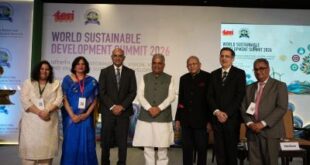Newcastle University’s researchers have been awarded £1.6 million to develop a network supporting people with dementia by connecting existing technology and services.
May 21, 2025: Newcastle University researchers highlight that technology holds the potential to significantly improve the lives of individuals with dementia by supporting their physical, cognitive, and social engagement, and can also play a vital role in tracking disease progression and linking people to essential services and resources.
Making everyday life ‘more accessible’
A new initiative will now unite academics, healthcare professionals, charities, local authorities, industry leaders, individuals living with dementia, and their families to bridge the existing gap by creating solutions that enhance accessibility and promote independent living.
The Technology Empowered Dementia Independence (TEDI) Network Plus is being funded by the UKRI Engineering and Physical Sciences Research Council (EPSRC) and the National Institute for Health and Care Research (NIHR), in collaboration with the Alzheimer’s Society.
Newcastle University Professor Dame Louise Robinson will collaborate with colleagues from Northumbria University and the University of Cumbria, along with NHS Trusts and a broad range of stakeholders across the North East and North Cumbria (NENC) region, including NortHFutures, a digital health hub serving the area.
She said, “Through the TEDI network, we aim to widen access within our region to existing technologies for families living with dementia and the professionals supporting their care and also facilitate the co-development of new technologies. Newcastle University already co-leads a dementia plus network on Inequalities in dementia care and through TEDI, we will explore the role of assistive technologies in as a solution to such care inequity.”
Over the next three years, the TEDI Network Plus will concentrate on three main objectives. The first is to identify gaps within the current system by mapping the life journey of an individual living with dementia in the NENC region. This process will highlight interactions with services like hospital admissions and reveal opportunities where technology and data-sharing could strengthen support.
The second objective is to create and test new solutions, with funding and support available for collaborative projects involving people with dementia, family caregivers, social care providers, healthcare professionals, and researchers. A dedicated team of designers, developers, and dementia specialists will work together to build user-friendly and effective technological tools.
The final goal is to enhance access to technology by trialling local technology hubs across the NENC region. These hubs, set in accessible community spaces, will offer individuals the chance to explore, borrow, and receive guidance on assistive technologies. They aim to ensure that people with dementia and their caregivers can easily access resources tailored to their needs, supporting their independence for as long as possible.
Additionally, TEDI Network Plus will partner with other EPSRC-funded Network Plus initiatives to examine how their technological advancements can be incorporated into dementia care systems.
 Newspatrolling.com News cum Content Syndication Portal Online
Newspatrolling.com News cum Content Syndication Portal Online






